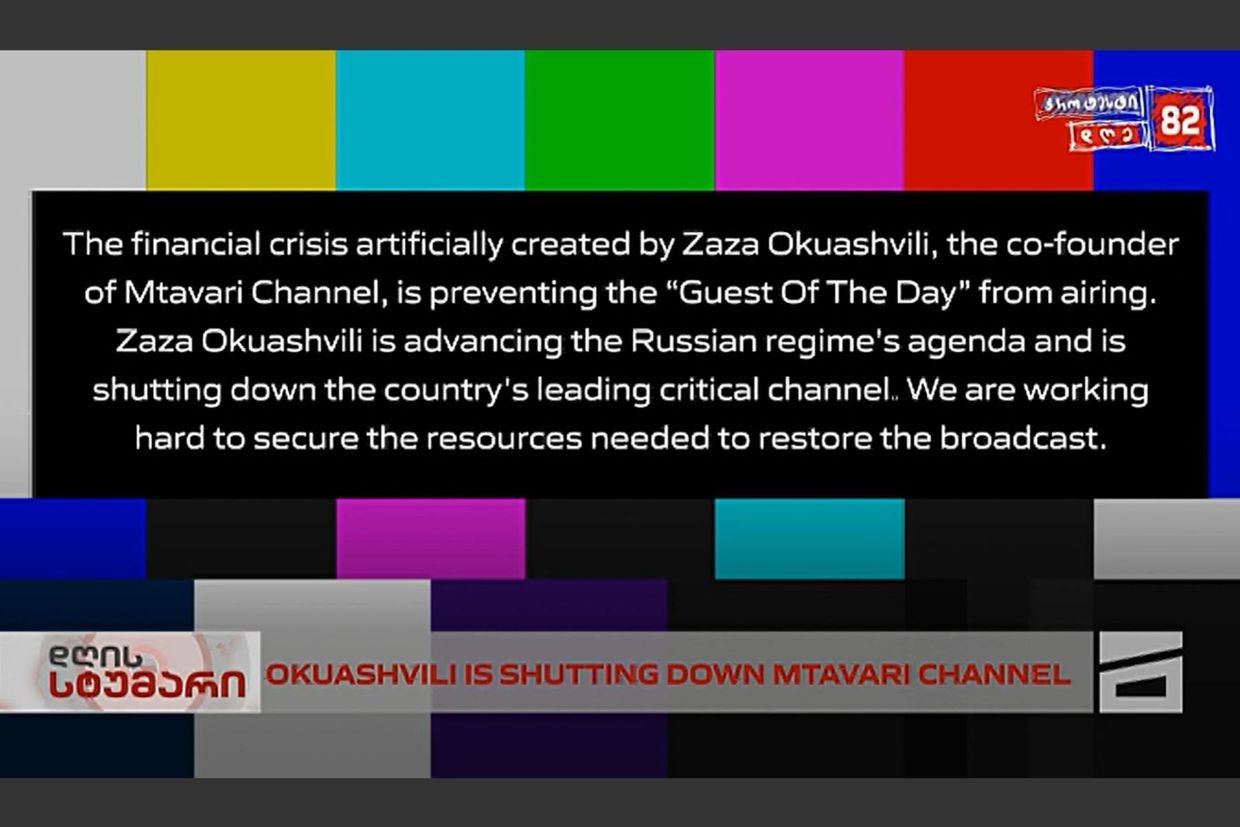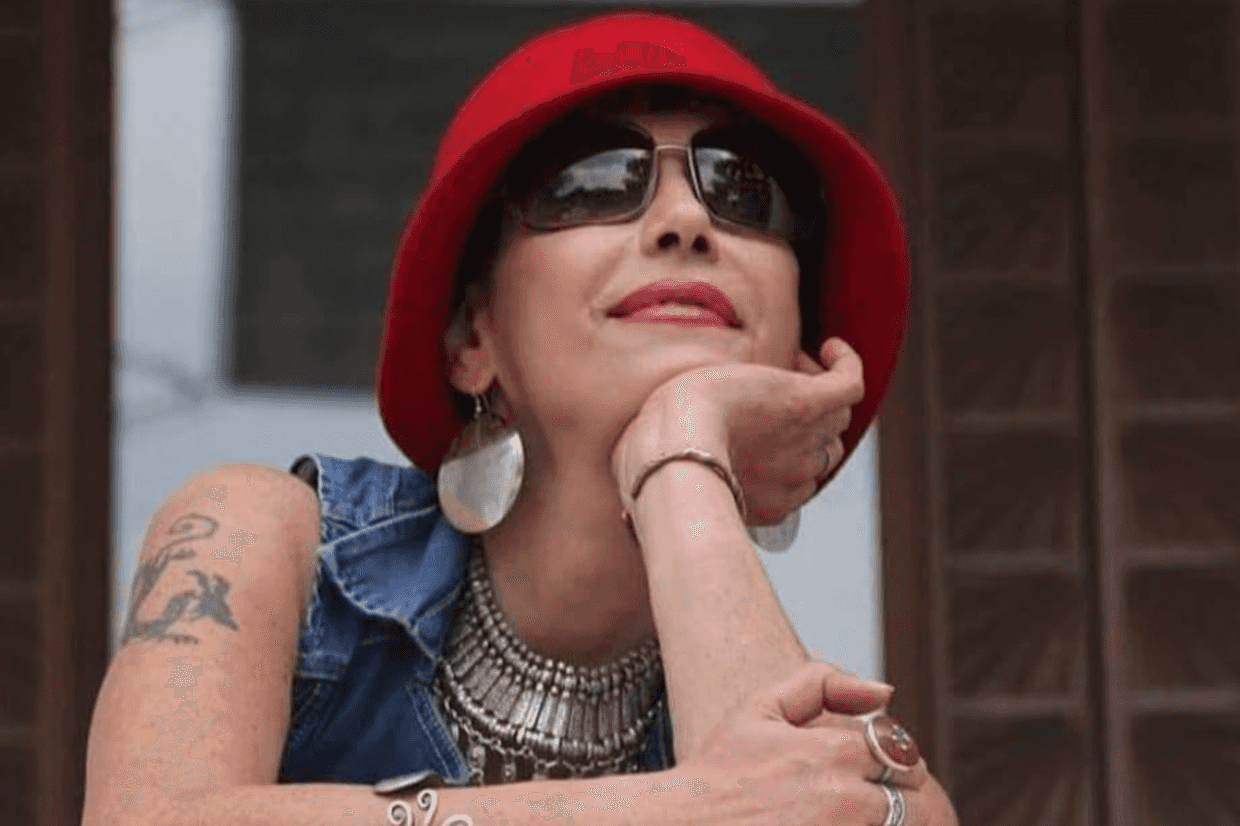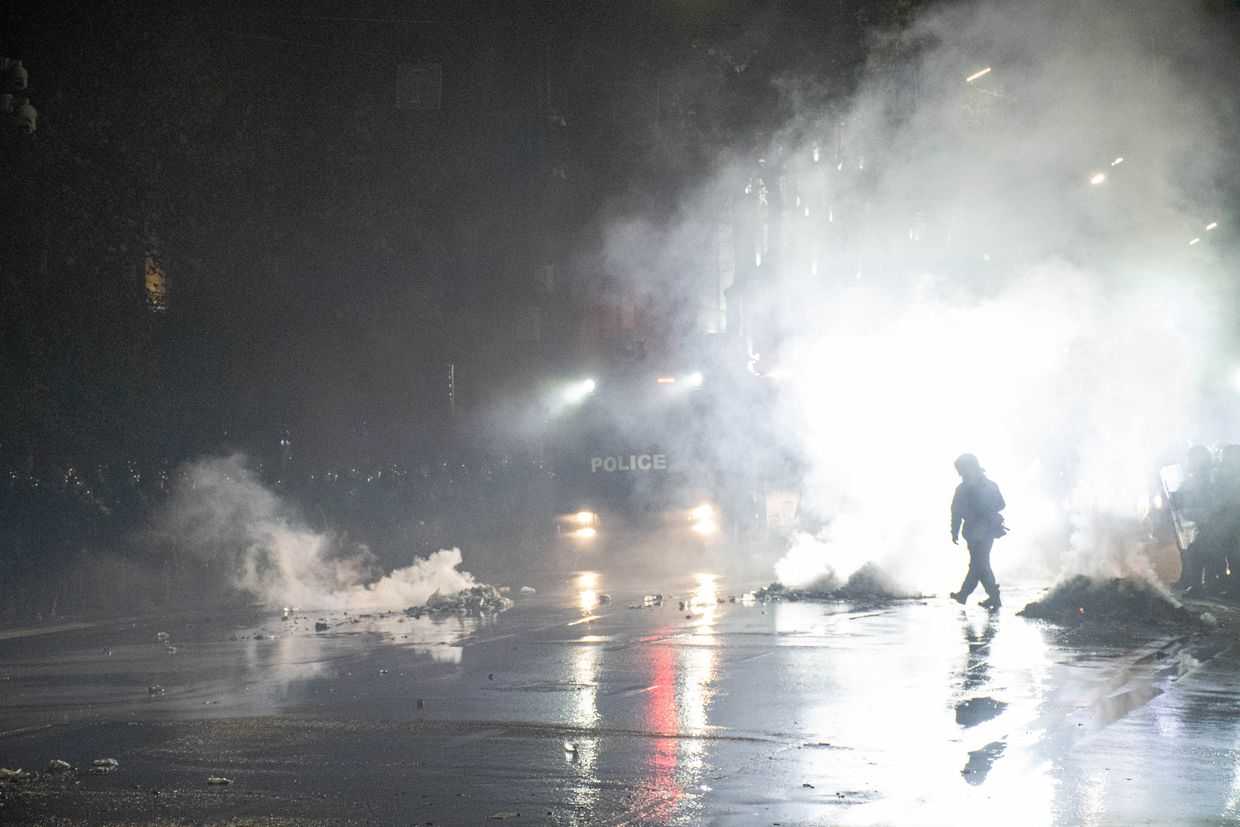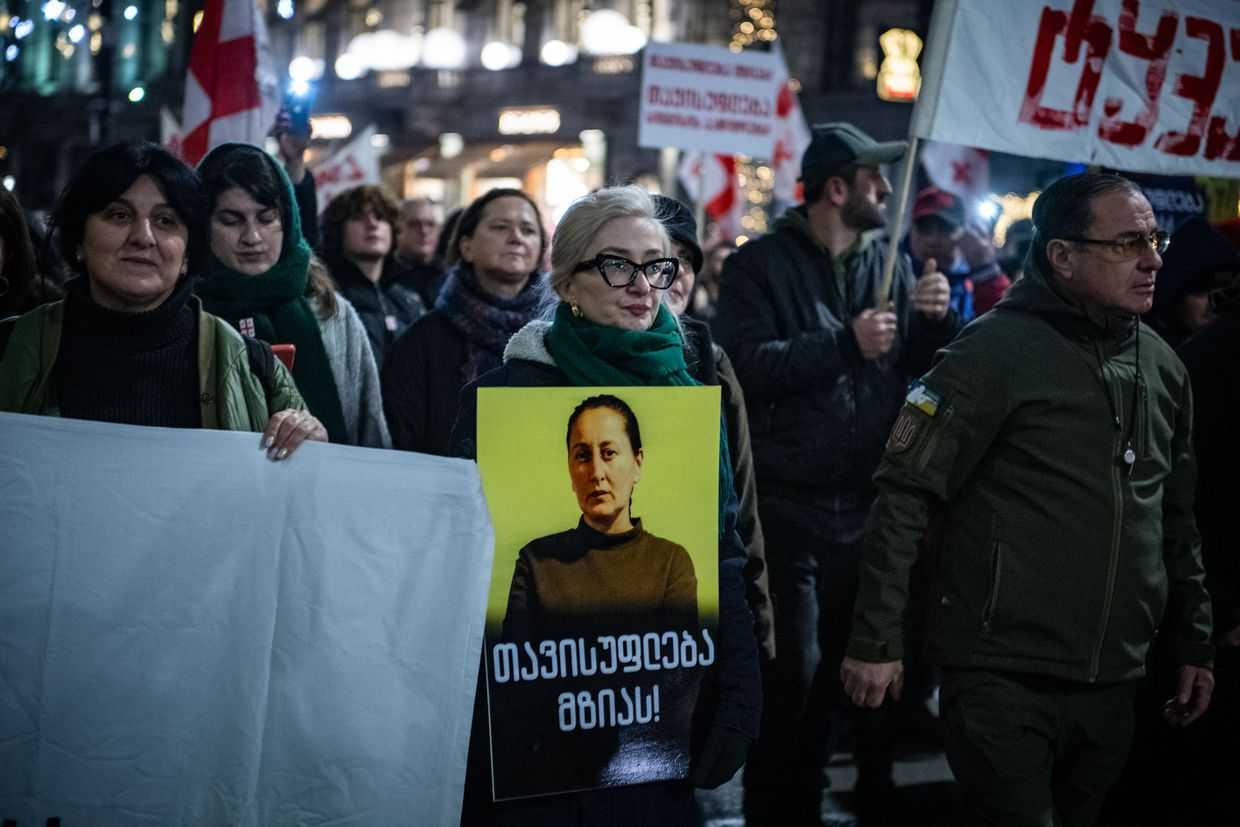
The opposition-aligned TV channel Mtavari stated that its network had stopped broadcasting. According to the statement, broadcasts have been suspended due to a ‘financial crisis artificially created by the channel’s co-founder, Zaza Okruashvili’.
On Saturday, Mtavari published a statement saying that at this point, all live broadcasts and their associated additional daily expenses have been suspended.
‘We no longer have the funds for daily operations’, the statement read. ‘[...] only recorded programmes, repeats of old programmes, TV series, and films [are being] broadcast’.
According to the statement, the channel cannot air news programmes, special broadcasts, and 10 other programmes.
‘We are working to find alternative funds to restore full airtime’, the statement read.
The social media of the channel is still working.
On 27 January, Mtavari reported that the channel had been turned off for all viewers based in Georgia’s regions and those watching abroad via satellite.
In January, the channel stated that starting from February, most cable TV providers will stop broadcasting the channel.
In January’s statement, Mtavari claimed that Okuashvili has been ‘systematically following the path characteristic of the Russian regime [meaning the ruling Georgian Dream party] and gradually closing the channel, which for five years firmly maintained the status of the country’s most influential critical media outlet’.

Nika Gvaramia, one of the channel’s founders and the leader of the opposition political party Ahali, wrote on Facebook on Saturday that the channel ‘has money and Okuashvili is stopping its spending’.
‘In addition to the fact that journalists, camera people, technical staff and everyone else are not receiving salaries, the channel is in a state of arrears – despite the fact that the channel has money, Okuashvili is blocking transfers: utilities, internet, technical services, transportation, satellite towers, ratings, purchases, all the other [expenses] – all of this is slowly being cut off. [Possibly meaning Okuashvili] is not allowing the sale of advertisements’, he said.
On 27 January, Mtavari claimed the reason for the crisis was due to director Gogi Kurdadze’s refusal to transfer money to the service providers, and that bills had been accumulating in the sales accounts for months. According to the channel, Kurdadze was appointed by Okuashvili.
On 30 January, according to local media, Okuashvili stated that the director of the channel should be changed from Giorgi Gabunia to someone else.
‘The accounts of the Mtavari Arkhi have been in debt collection for three years now, and the TV company has been unable to make official transfers’, he said.
‘The director I nominated, Giorgi Kurdadze, did not become an accomplice in the criminal activities taking place on the Mtavari Arkhi. Kurdadze’s request is an action within the legal framework of the channel’s work. The advertising company “New Sales”, which was involved in the money laundering scheme, is no longer cooperating with the Mtavari Arkhi after being exposed by Giorgi Kurdadze, and accordingly, advertising on the channel has been suspended’.
‘My request was simple: Gabunia, who, in addition to his illegal activities at Mtavari Arkhi, has shown himself to be slanderous and lying towards me, should no longer be the general director of this channel’.
Okuashvili hasn’t made a statement since Saturday, when the channel stopped live broadcasting.











